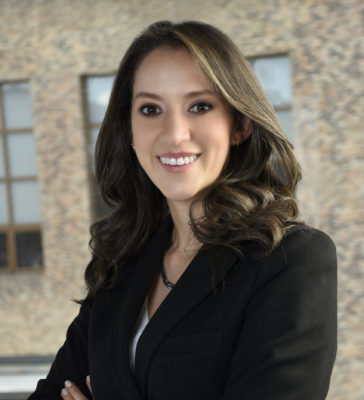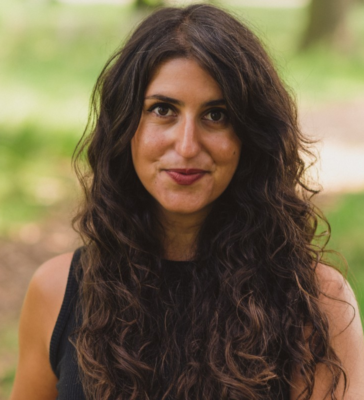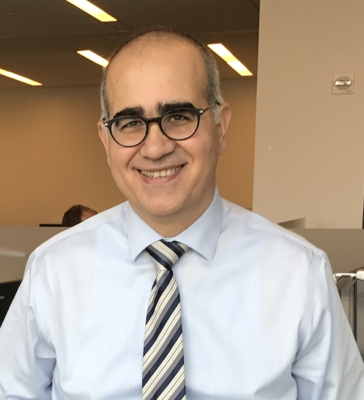
Paula Cuero Marin
Current Employer/Organisation Name
International Committee of the Red Cross
What have you been doing since leaving Exeter, and what are you doing now?
I left Exeter during the pandemic in 2020 and finished the last quarter of the MBA online from Colombia. I was doing my consultancy project for Arcadis and the Environment Agency in the UK during this time. My project was about identifying analytical frameworks to identify gaps in knowledge and technology tools, such as blockchain, to track carbon emissions along the Environment Agency’s supply chain. During the MBA and a couple of months after finishing it, I work on creating a career plan with the MBA’s career coach. It was clear to me that I was purpose-driven, and I wanted to do a job that impacted people’s lives. I also wanted to lead a team and engage in strategic decision-making in a large organisation. Dominic Prosser, the former MBA career coach, supported me during the process, including preparing my CV and interviews. I was glad to be appointed as the Water and Habitat Unit Coordinator at Colombia’s delegation of the International Committee of the Cross (ICRC). I was impressed with my new role similarity with what I wrote in my intention letter when I applied for the MBA. In this role, I define the strategic orientations for the Unit in Colombia and lead and manage a team of 20 engineers nationwide to assist communities in the most remote areas affected by armed conflict. The objective is to conduct projects that allow access to water, sanitation, and community infrastructure with and intended outcome of mitigating armed conflict-related risks in the communities by increasing their capabilities and reducing their vulnerability. The role also implies interacting with multiple stakeholders at the community and national and international levels. The position is exciting as I can apply my engineering background and the knowledge, leadership, and management skills developed at the MBA in Exeter. It has been rewarding work.
Why did you choose this career? And what do you enjoy most about your work?
I chose this career because I can apply my knowledge and skills to improve the most vulnerable people’s life. We do more than facilitate access to water and shelter; it is a way to alleviate suffering and transform people’s lives. What I enjoy most about my work is our proximity to the communities. It is a privilege to go to different remote areas in Colombia, many of which no other organizations have safe access. The best part of my work is interacting with the children and seeing hope in their eyes when we are conducting a project in their communities. I also enjoy leading and coaching the team and participating in strategic discussions.
Please tell us if you were a member of any societies, groups or sports clubs?
Yes, I was part of the outdoors society and salsa society.
Were you part of the Exeter Student Ambassador Scheme at any point during your studies?
Yes
What did you enjoy most about your programme and what was the biggest highlight?
The Exeter MBA was an experience that broadened my perspective to an unimaginable level. The global leading expertise of the professors and lecturers gives critical perspectives and tools from various disciplines essential for leading in a fast-changing world. The biggest highlight of the programme is its approach to responsible and caring leadership and focus on sustainability. It is about being successful businesses that, at the same time, are purposeful and responsible.
What did you enjoy most about studying here?
When I think about my time at Exeter, you will see a big smile on my face. People: students, administrative staff and academics are kind and make you feel welcome. What I enjoyed the most was finding like-minded individuals from various nationalities to share and debate innovative ideas.
Why did you choose to study at Exeter?
I chose Exeter for two reasons; the first one was because the MBA programme was different for most MBAs. The Exeter MBA focused on sustainability, circular economy, and mindful leadership resonated with me and my purposeful, intended career. The second one is the leading expertise of the university in Water Management, which is my previous technical expertise.
What skills and experiences have been most useful for your career?
What skills and experiences have been most useful for your career? The MBA strengthened my critical thinking and taught me to analyze internal and external factors to define or adjust a strategy. This learning has been instrumental in my work’s volatile and constantly changing context. It has helped me to analyze and adapt the strategy to the context and to add value to the organization. I have also applied design thinking methodologies to rural communities to make our response suitable for their needs. Moreover, change management has allowed me to adapt ways we work to provide people-centric approaches for different ethnicities within the country. Finally, the leadership programme at the MBA has transformed the way I lead, and it has allowed me to be an inspiring leader that focuses on my team’s well-being.
What advice would you give to a current student who wishes to pursue your career?
My advice would be to give priority to your career transformation plan. Start early in the MBA to discuss with your career coach and explore what you desire and how you can develop the skills for your future career. Get the best out of your MBA; there is great value in the activities out of classes, and engaging in discussions with classmates and professors from different backgrounds will help you broaden your perspectives.
What are your plans for the future?
My plans for the future are to keep improving people’s lives and have a more significant impact at a regional and international level. I want to contribute to strategic discussions and foresight strategy at the global level.

